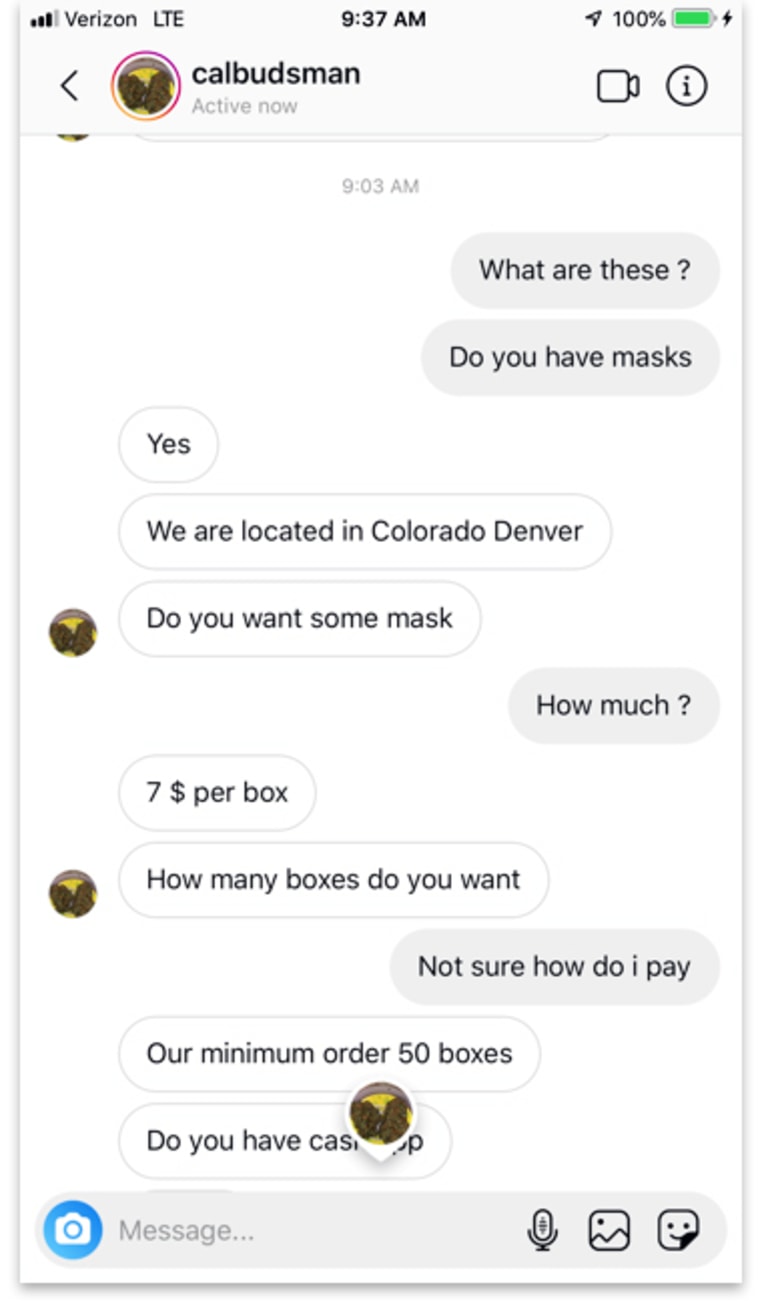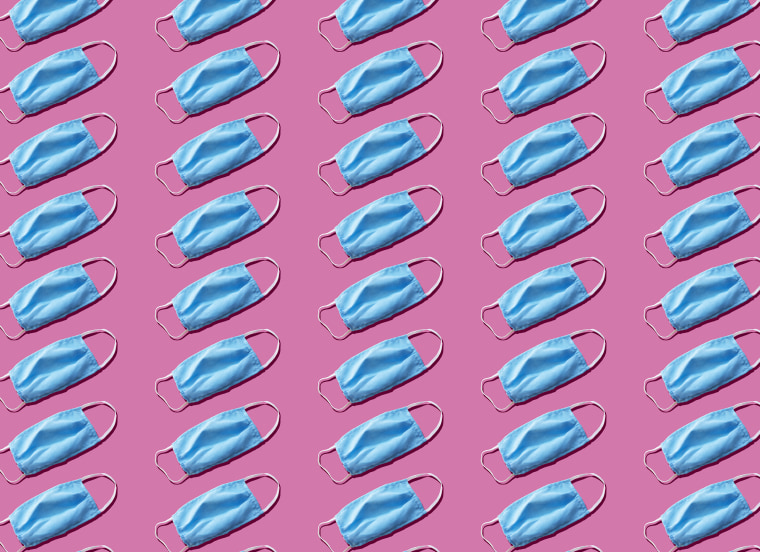Coronavirus-related products are still for sale across most major social media platforms, including through person-to-person messaging systems, despite some efforts to crack down on black- and gray-market activity around the outbreak.
Facebook temporarily banned ads and listings in Marketplace, its Craigslist-style classifieds section for coronavirus masks, on Friday, but searches like "N95 mask surgical mask supplier" on Facebook turned up a variety of marketers selling on Pages and Groups.
"Hey! Does anyone want to buy N95 masks or other surgical masks? We can make up to 2 million masks a day with our current factories in China, and our masks our FDA + NIOSH certified unlike any other supplier," said one post with a video of the purported operation in the "N95 mask surgical mask supplier" group on Facebook.
NIOSH is the National Institute for Occupational Safety and Health.
Full coverage of the coronavirus outbreak
Searches conducted by NBC News turned up similar sales on Instagram Pages and Twitter. Twitter user "COVID19Masks" pointed people to a website selling masks using images that appeared to be ripped from Amazon, complete with the Amazon logo attached. The website also marketed smoke masks for dogs "to prevent the Coronavirus and other pollution from killing or harming the health of your pet."
The Food and Drug Administration, which oversees medical devices, did not immediately respond to a request for comment.
U.S. health officials have warned against panic buying by the average consumer, which could create artificial shortages. Masks are largely intended for health care professionals working directly with patients.
It was not apparent whether any of the sales were legitimate. It's unknown whether desperate buyers would ever actually receive the black market items. Several sellers indicated that they accepted gift cards, cryptocurrency and Western Union wire transfers, which are less traceable systems of currency sometimes favored by illicit sellers.
The offerings highlight how the fringe markets of social media have seized on the coronavirus to fly under the radar of broader efforts to stop misinformation and profiteering. Some accounts that purport to market other illicit goods, such as drugs, have even turned to coronavirus-related products.
Download the NBC News app full coverage of the coronavirus outbreak
Security experts have also warned that hackers have seized on fears about the new coronavirus to unleash malicious software that can compromise computer systems.
Many of the accounts follow a similar pattern, using public or semi-public forums for marketing, then directing people to encrypted messaging apps such as WhatsApp, which is also owned by Facebook, or apps that allow people to quickly transfer money.
Facebook and Twitter did not immediately respond to requests for comment.
Eric Feinberg, vice president of content moderation at the Coalition for a Safer Web, a Washington, D.C.-based social media accountability nonprofit, said he interacted with some accounts that were selling coronavirus masks, including one that had been dedicated to marijuana products.
In one screenshot Feinberg took of a conversation, a seller on the now-removed "calbudsman" Instagram account said it sold masks at $7 per box with a minimum order of 50 boxes.
Feinberg said it was impossible to know whether the products would ever be shipped.
So far, only Facebook and its subsidiary Instagram have made announcements to restrict the marketing of coronavirus supplies by unregulated third-party suppliers on their platforms.

"Supplies are short, prices are up, and we're against people exploiting this public health emergency," tweeted Adam Mosseri, the head of Instagram.
Members of Congress are starting to take notice.
"E-commerce companies have proven themselves incapable of policing activity on their platforms before the COVID-19 outbreak, so it's past time for regulators to hold them accountable for their role in disseminating deceptive advertising and fraudulent health products during a public health emergency," Rep. Jan Schakowsky, D-Ill., chairwoman of the Energy and Commerce Subcommittee on Consumer Protection and Commerce, said in a statement emailed to NBC News.
While pleased that the Federal Trade Commission and the FDA sent warning letters to several companies Monday and issued guidance warning consumers about fraudulent health products related to the outbreak, Schakowsky said she thinks the agencies can do more.
"I believe that both agencies must act to remove these products from the market and hold industry responsible for failing to enforce their own existing policies," Schakowsky said in the statement.

